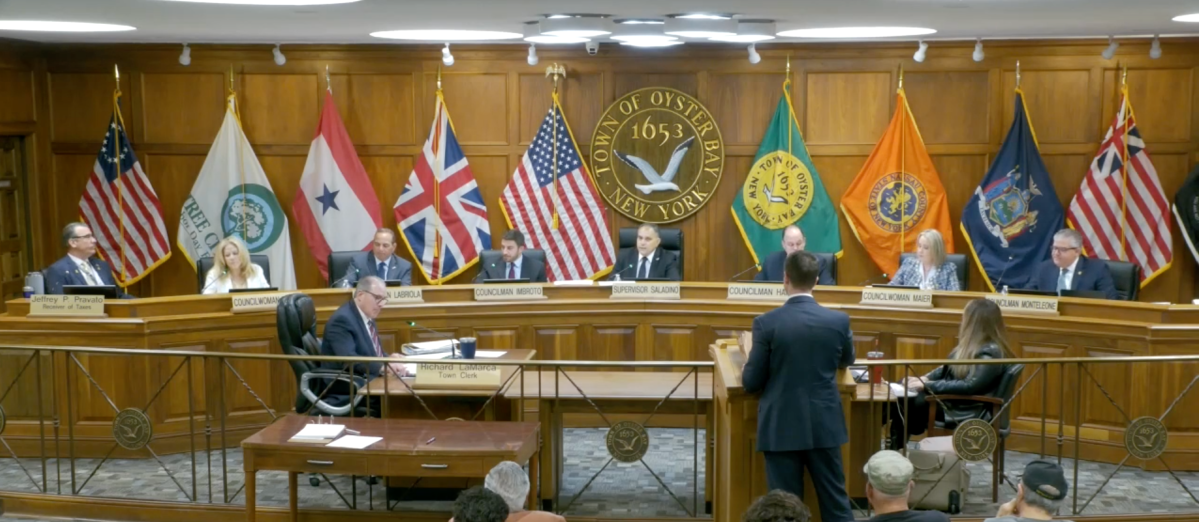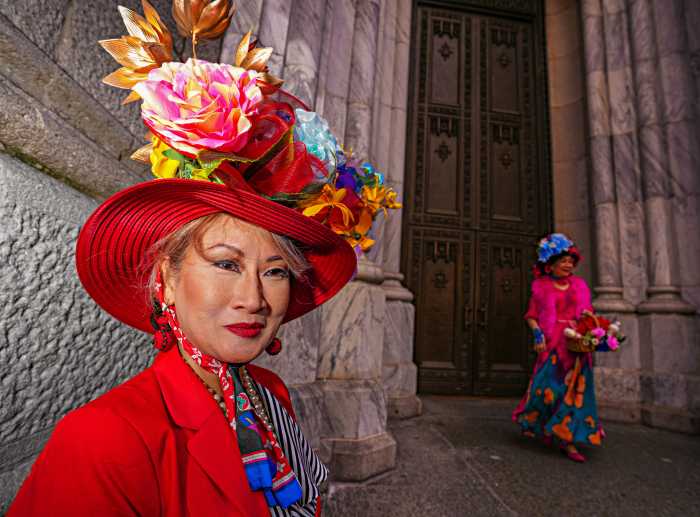Antigua and Barbuda
The Organization of American States (OAS) voted to hold the next general assembly in Antigua and Barbuda after its general assembly recently ended in Paraguay.
“The agreement by acclamation to hold the 55th General Assembly of the OAS in Antigua and Barbuda is a testimony to the confidence of the leadership, government, and people of Antigua and Barbuda,” said the country’s Ambassador to the OAS, Ronald Sanders.
“We are proud and pleased by the honor done to us by the enthusiastic response of all the OAS member states that the general assembly should be held in Antigua and Barbuda,” he added.
Sanders told the Assembly that St John’s was delighted to have extended an invitation to host the Assembly in June next year, saying “our deep regard for the OAS is rooted in our commitment to its principles of freedom, equity, and justice.”
The Antigua and Barbuda diplomat said that it has been 22 years since the OAS General Assembly graced the Caribbean, “and we believe it is time to bring this gathering back to our region, to a place where the warmth of our community reflects the spirit of our cooperation.”
He said the country’s recent success in hosting the fourth United Nations Conference on Small Island Developing States, with over 5,000 delegates, “highlights our ability to bring leaders together in a setting that inspires dialogue and strengthens partnerships.
“We invite you to experience Antigua and Barbuda—not just as a venue, but as a home where the spirit of unity and the joy of collaboration are part of the very air we breathe,” Sir Ronald told the delegates attending the Assembly.
Barbados
The newly elected chairman of the Barbados-based Caribbean Development Bank (CDB), Dr. Renata Vargas Amaral says her priorities over the next year will be tackling climate change, deeper private sector engagement and enhancing multilateral development.
A statement issued by the bank said Amaral was elected at its 54th annual board of governors meeting that was held in Canada recently and that the Brazilian Secretary for International Affairs and Development, laid out a “comprehensive vision” aimed at strengthening the CDB’s role and effectiveness.
Dr Amaral emphasised the country’s commitment to enhancing Multilateral Development Banks
“Our presidency is committed to enhancing Multilateral Development Banks, aiming for them to become bigger, better, and more effective. The CDB has the potential to achieve these goals in the short term,” she said.
“Among our initiatives for the next months and years, we need to bring the private sector together. In this sense, I encourage the strengthening of the relationship with the private sector for the sustainable growth of the region and the need for the bank to intensify its efforts to support private sector growth, lifting the private sector as a key partner for development,” she added.
The CDB chairman for Brazil also pointed out the significant impact of climate change on the Caribbean, emphasising that individual countries cannot adequately address it alone.
CARICOM
Three CARICOM countries have been listed in the top tier of the 2024 Trafficking in Persons (TIP) report, released by the United States State Department recently.
Washington said that the governments in The Bahamas, Suriname and Guyana have fully met the Trafficking Victims Protection Act of 2000 (TVPA), which provides a framework to identify and help individuals who may have experienced trafficking.
Antigua and Barbuda, Barbados, Belize, Jamaica, Trinidad and Tobago, St Lucia and St Vincent and the Grenadines have been named in Tier 2, with the governments in these countries not fully meeting the TVPA’s minimum standards but are making significant efforts to bring themselves into compliance with those standards.
In addition, countries are placed on Tier 2 in situations where the estimated number of victims of severe forms of trafficking is very significant or is significantly increasing and the country is not taking proportional concrete actions.
In addition, there is a failure to provide evidence of increasing efforts to combat severe forms of traffick ing in persons from the previous year, including increased in-vestigations, prosecutions, and convictions of trafficking crimes, increased assistance to victims, and decreasing evidence of complicity in severe forms of trafficking by government officials.
No Caricom country is listed in Tier 3, where governments do not fully meet the TVPA’s minimum standards and are not making significant efforts to do so.
However, the report notes that the French-speaking CARICOM country of Haiti has been placed under the heading “Special Case” along with Yemen, Somalia and Libya.
US Secretary of State Antony Blinken said human trafficking is a stain on the conscience of society.
“It fuels crime, corruption, and violence. It distorts our economies and harms our workers.”
Blinken said that the State Department’s annual Trafficking in Persons Report provides the world’s most comprehensive assessment of this “abhorrent practice, as well as efforts by governments and stakeholders around the globe to combat it.
Grenada
Investment Migration Agency Grenada (IMA Grenada) has announced that effective July 1, 2024, a new price structure will be implemented, aligning with standardized rates across the OECS for Citizenship by Investment Programs.
Under the new framework, the minimum investment requirement for the Grenada Citizenship by Investment Program will become US$235,000. This adjustment brings Grenada in line with the other OECS member states, ensuring uniformity and marks the conclusion of an era of downward spiral price competition.
Thomas Anthony, CEO of the Investment Migration Agency Grenada, expressed enthusiasm about the changes: “This groundbreaking agreement between the five governments signals an end to the race-to-the-bottom era which persisted for far too long and sets the foundation necessary for harmonization across all Citizenship by Investment Programs in the region.
We will continue to do the necessary work to further strengthen Grenada’s and the Region’s governance infrastructure. This effort is critical to secure the longevity of the Programs and continuing appeal to global investors, while maintaining the high standards of integrity and due diligence.”
In addition to the pricing adjustment, the Memorandum of Agreement seeks to standardize marketing practices, due diligence standards across all OECS programs, and the creation of a regional regulatory framework.
This initiative is expected to enhance transparency and accountability, further solidifying the region’s reputation as a leader in the investment migration industry.
Guyana
The Guyana government says the agricultural sector earned more than US$29.9 million (Guy $919 million) in revenue during the first half of this year from the export of non-traditional crops.
Minister of Agriculture Zulfikar Mustapha said the revenue represents a 12.7% increase over the corresponding period last year.
“In the first half of 2024, Guyana has made significant strides in exporting non-traditional agricultural goods. We have seen a 12.7% increase compared to last year reaching over 4156 metric tonnes with a value exceeding Guy$919 million,” Mustapha said.
Mustapha said that by increasing exports, Guyana not only earns foreign exchange but also the country is known as a reliable supplier of high-quality food products.
“You the exporters are the bridge between our fields and the world. Through your dedication to quality, logistics and market research you are transforming Guyanese produces into global brands,” he said, adding that the long term goal is to make Guyana the center of food production in the region.
“For too long we have relied on exporting raw material, leaving the value addition to other countries. “You have to change that narrative,” Mustapha said, adding that by taking local produce and transforming it into high value products, jobs are created, livelihood are boosted and local food security is strengthened.”
Haiti
The first UN-backed contingent of foreign police arrived in Haiti recently, nearly two years after the troubled Caribbean country urgently requested help to quell a surge in gang violence. A couple hundred police officers from Kenya landed in the capital of Port-au-Prince.
They will face violent gangs that control 80 percent of Haiti’s capital and have left more than 580,000 people across the country homeless as they pillage neighbourhoods in their quest to control more territory.
The Kenyans’ arrival marks the fourth major foreign military intervention in Haiti. While some Haitians welcome their arrival, others view the force with caution, given that the previous intervention the UN’s 2004-2017 peacekeeping mission was marred by allegations of sexual assault and the introduction of cholera, which killed nearly 10,000 people.
Romain Le Cour, senior expert at Global Initiative Against Transnational Organized Crime, called on the international community and government officials to share details including the mission’s rules of engagement and concept of operation.
Meanwhile, the United Nations Integrated Office in Haiti issued a brief statement welcoming the Kenyans’ arrival saying: “It is a crucial step in the fight to restore security in the Haitian capital and its surroundings and protect the rights of Haitians.”
— Compiled by Devika Ragoonanan
























